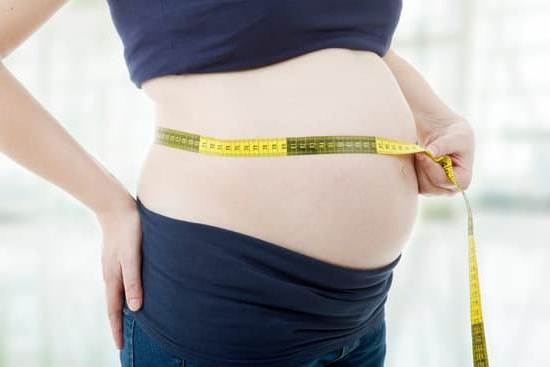Pregnancy is a beautiful journey filled with unique experiences and transformations. From morning sickness to mood swings, expecting mothers may encounter a range of symptoms that come with the territory of carrying a baby. One common discomfort that many pregnant women face is swelling, also known as edema. So, when does swelling start in pregnancy? This article delves into the topic, shedding light on why swelling occurs during pregnancy and how women can manage it effectively.
During pregnancy, hormonal changes play a significant role in causing swelling in expectant mothers. The body retains more water and fluids to support the developing fetus, leading to fluid accumulation in various parts of the body such as the feet, ankles, and hands. This increase in fluid retention can result in noticeable swelling that may vary in intensity from woman to woman. Understanding these physiological changes can help pregnant women better cope with this symptom throughout their pregnancy.
Swelling typically begins to manifest around the second trimester for most pregnant women but can vary depending on individual factors. Factors like diet, activity level, genetics, and overall health can influence the onset and severity of swelling during pregnancy.
It’s essential for expecting mothers to be mindful of these factors and make adjustments where necessary to ensure a more comfortable and healthier pregnancy journey. In the following sections, we will explore when most women experience swelling during pregnancy, what influences this phenomenon, and effective ways to manage and reduce swelling for an easier gestation period.
Understanding Pregnancy Swelling
During pregnancy, many women experience swelling, also known as edema. This common symptom typically occurs in the hands, legs, ankles, and feet. Swelling during pregnancy is often a result of increased blood volume and pressure on the veins caused by the growing uterus. However, not all women will experience significant swelling during their pregnancy, and it can vary from person to person.
Hormonal changes also play a significant role in pregnancy-related swelling. The hormones progesterone and relaxin cause relaxation of the walls of blood vessels, which can lead to fluid retention and swelling in various parts of the body. Additionally, the hormone aldosterone increases during pregnancy, promoting sodium retention and contributing to fluid buildup.
The onset of swelling during pregnancy can vary among women. For some, swelling may start as early as the first trimester due to hormonal changes and increased blood volume.
However, it is more common for noticeable swelling to occur in the second trimester and peak in the third trimester when the growing uterus puts more pressure on blood vessels. It is essential for pregnant women to stay hydrated, elevate their feet when possible, and avoid standing or sitting for long periods to help reduce swelling throughout their pregnancy journey.
| Timeline | Stage |
|---|---|
| First Trimester | Possible onset due to hormonal changes |
| Second Trimester | More commonly experienced with increasing blood volume |
| Third Trimester | Peaks due to pressure from growing uterus on blood vessels |
The Science Behind Pregnancy Swelling
During pregnancy, women may experience swelling in different parts of their bodies. This swelling, also known as edema, is a common symptom that occurs due to various physiological processes happening in the body. Understanding the science behind pregnancy swelling can help expectant mothers cope with this discomfort and take necessary measures to manage it effectively.
Fluid Retention
One of the primary reasons for swelling during pregnancy is fluid retention. As the body produces more blood to support the growing fetus, the kidneys work harder to filter waste and maintain proper levels of fluid in the body. This increased blood volume can result in excess fluid accumulating in tissues, leading to swelling, particularly in the hands, feet, ankles, and face.
Hormonal Changes
Hormonal changes play a significant role in causing swelling during pregnancy. Hormones like estrogen and progesterone cause blood vessels to relax and expand, which can contribute to increased pressure on veins and lymphatic vessels. This vascular pressure, combined with fluid retention, impairs the body’s ability to properly regulate fluids and can result in swelling.
Increased Uterine Pressure
As the uterus grows larger throughout pregnancy, it puts pressure on major blood vessels like the inferior vena cava that return blood from the lower body to the heart. This pressure can slow down circulation and further contribute to fluid accumulation in tissues.
Additionally, this uterine pressure can also compress pelvic veins, leading to venous congestion that exacerbates swelling in the legs and other areas of the body. Understanding these physiological processes can help pregnant women anticipate when does swelling start in pregnancy and take proactive steps to alleviate discomfort.
When Does Swelling Start in Pregnancy
Pregnancy is a miraculous journey that comes with its own set of challenges and changes. For many women, swelling, also known as edema, is a common symptom experienced during pregnancy. Understanding when swelling typically starts can help expectant mothers prepare for this normal part of the process.
In most cases, swelling during pregnancy can start as early as the second trimester, around week 22. This is when the body begins to retain more water and blood volume increases to support the growing fetus. As pregnancy progresses into the third trimester, around week 27 to 30, swelling may become more noticeable, especially in areas like the feet, ankles, and hands.
It’s essential to note that every woman’s experience with swelling during pregnancy can vary. Factors such as genetics, diet, activity level, and overall health can influence when swelling starts and how severe it becomes. Staying hydrated, maintaining a balanced diet low in sodium, elevating legs when possible, wearing comfortable shoes, and avoiding long periods of standing or sitting can help manage swelling during pregnancy.
| Week | Development |
|---|---|
| Week 22 | Start of swelling due to increased water retention and blood volume |
| Week 27-30 | Swelling may become more noticeable in areas like feet, ankles, and hands |
Factors That Influence Swelling
During pregnancy, swelling is a common occurrence for many women. While some may experience mild swelling, others may have more severe symptoms that impact their daily lives. Understanding the factors that influence swelling can help pregnant women navigate this symptom more effectively.
Diet
Diet plays a significant role in the onset and severity of swelling during pregnancy. Consuming foods high in sodium can lead to water retention, exacerbating swelling in the hands, feet, and ankles. Pregnant women are advised to maintain a balanced diet rich in fruits, vegetables, and whole grains while limiting their intake of processed and salty foods to help reduce swelling.
Activity Level
Physical activity can also impact the degree of swelling experienced during pregnancy. Maintaining a regular exercise routine can help improve circulation and reduce fluid retention, reducing the likelihood of excessive swelling. Simple activities such as walking or prenatal yoga can be beneficial in managing swelling while promoting overall well-being.
Genetics
Genetics play a role in how each woman’s body responds to pregnancy-related changes. Some women may be more predisposed to experiencing significant swelling due to hereditary factors. If a woman has a family history of edema or swollen limbs during pregnancy, she may be more likely to experience similar symptoms. Understanding these genetic influences can help expectant mothers prepare for potential challenges related to swelling throughout their pregnancies.
By considering these various factors, pregnant women can take proactive steps to manage and reduce swelling during this transformative time in their lives. Working closely with healthcare providers to develop a personalized plan tailored to their individual needs can support expectant mothers in navigating the ups and downs of pregnancy-related symptoms like swelling effectively.
Managing Swelling During Pregnancy
During pregnancy, swelling can be a common and uncomfortable symptom for many women. It is essential for expecting mothers to understand how to manage and reduce this swelling to ensure a more comfortable experience during this crucial time. Here are some helpful tips and strategies for pregnant women to navigate through swelling:
- Stay Hydrated: Drinking plenty of water throughout the day can help minimize swelling by flushing out excess fluids from the body.
- Elevate Your Feet: Elevating your legs and feet whenever possible can improve circulation and reduce the pooling of fluids in your lower limbs.
- Regular Exercise: Engaging in gentle exercise, such as low-impact activities like walking or swimming, can help prevent swelling by promoting blood flow and reducing fluid retention.
In addition to these strategies, pregnant women can also benefit from incorporating a well-balanced diet rich in fruits and vegetables, which can help regulate sodium levels in the body and reduce bloating. Wearing comfortable, supportive shoes and avoiding standing or sitting for prolonged periods can also alleviate swelling. It is crucial to listen to your body and take breaks when needed to prevent excessive swelling.
Remember that every woman’s body is different, so what works for one may not work for another when it comes to managing pregnancy-related swelling. If you have concerns about the onset or severity of swelling during your pregnancy, it is always best to consult with your healthcare provider for personalized advice and guidance.
By proactively addressing swelling and implementing these tips and strategies, pregnant women can better cope with this common symptom and focus on enjoying this special time in their lives.
When to Seek Medical Help
During pregnancy, it is normal for women to experience some degree of swelling, also known as edema. However, it is essential to be aware of the warning signs and symptoms that may indicate a more serious condition related to swelling. While mild swelling is common in pregnancy, excessive or sudden swelling can sometimes be a cause for concern.
Here are some warning signs and symptoms to watch out for when experiencing swelling during pregnancy:
- Severe swelling in the hands, face, or feet
- Sudden or rapid weight gain
- Persistent headaches
- Visual disturbances such as blurred vision or seeing spots
- Pain or tenderness in the upper abdomen
If you experience any of these symptoms, it is crucial to seek medical help immediately. These could be signs of preeclampsia, a serious condition that affects some pregnant women and requires prompt medical attention. Preeclampsia is characterized by high blood pressure and abnormal levels of protein in the urine, along with other symptoms like severe headaches and vision changes.
Remember that while some swelling is normal during pregnancy, it is important to listen to your body and pay attention to any unusual symptoms. Always consult with your healthcare provider if you have concerns about the level of swelling you are experiencing or if you notice any concerning signs or symptoms. Your health and the health of your baby are top priorities during this special time.
Conclusion
During pregnancy, swelling is a common symptom that many women experience due to hormonal changes and increased blood volume. The majority of women typically start noticing swelling around the fifth month of their pregnancy, although some may begin experiencing it earlier or later in their pregnancy journey. Factors such as diet, activity level, and genetics can also influence the onset and severity of swelling.
It is important for pregnant women to be aware of how to manage swelling during pregnancy. Simple strategies like staying hydrated, elevating legs when possible, wearing comfortable shoes, and avoiding excessive salt intake can help reduce swelling. Regular exercise and incorporating foods rich in potassium can also aid in minimizing water retention and swelling.
Despite these discomforts, it is essential for pregnant women to remember that swelling is a normal part of the pregnancy process for many individuals. However, if swelling becomes severe or is accompanied by symptoms such as high blood pressure or headaches, it is crucial to seek medical advice promptly.
By being proactive about managing swelling and keeping an open line of communication with healthcare providers, pregnant women can navigate this common symptom with confidence and ensure a healthy journey for both themselves and their baby.
Frequently Asked Questions
What Week of Pregnancy Does Swelling Start?
Swelling during pregnancy can start as early as the second trimester, around week 22 to week 27. This is primarily due to the increased blood volume and pressure on the blood vessels in the lower body as the uterus expands.
How Can I Prevent Puffy During Pregnancy?
To prevent puffiness during pregnancy, it is essential to stay hydrated by drinking plenty of water throughout the day. Regular exercise, such as walking or swimming, can help improve circulation and reduce swelling. Additionally, elevating your legs when sitting down and avoiding standing for long periods can also help prevent puffiness.
How Can I Prevent Edema During Pregnancy?
Preventing edema during pregnancy involves similar strategies like staying physically active through low-impact exercises like yoga or stretching. Eating a balanced diet with reduced sodium intake can help minimize fluid retention in the body. Wearing comfortable shoes and compression stockings can also aid in preventing edema by improving blood circulation in the legs and feet.

Welcome to my fertility blog. This is a space where I will be sharing my experiences as I navigate through the world of fertility treatments, as well as provide information and resources about fertility and pregnancy.





